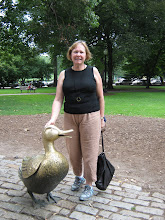I spend the whole of my teaching days with children between three and eight. They want and need a plot, quality artwork, good vocabulary and the books need to warrant revisiting.
This year in the lead up to Book Week I am tempted to create my own shortlist of Australian picture books to explore because four books I think should be on the list and which I know will work with my students, didn't even make the Notables. These four fabulous books are:

Dumazi and the Big Yellow Lion by Valanga Khoza and Matt Ottley. In this story Dumazi is on her way to the waterhole when she encounters a lion caught in a trap. The lion wants her to set him free, but she knows that lions roaming free are dangerous. Written by Valanga Khoza who has lived in Africa, so set in Africa, accompanied by superb artwork and a CD of the story read by the author with outstanding music performed by the author and illustrator. The quintessential work of art!
Fly! by Jess McGeachin
Lucy finds a bird with a broken wing, which she is sure she can fix. But not everything that’s broken can be fixed. This story of determination highlights a beautiful daughter father relationship. It is a debut book and has so much depth and so many conversation starting points.
Leonard Doesn't Dance by Frances Watts and Judy Watson
The word play and vocabulary extension provided by this story about birds and dancing is more than enough, but there is also a theme worth exploring with children as well. Also take a look at Judy Watson's Pinterest page of bird drawings she did for the book.
Sarah's Two Nativities by Janine M. Fraser and Helene Magisson
At Christmas time, Sarah snuggles in each of her grandmothers' laps. Grandmother Azar tells Sarah stories from the Holy Koran and Grandmother Maria tells her stories from the Bible. She listens to two nativities stories about the birth of baby Jesus. They are the same in some ways, and different in others. What a perfect introduction for talking about Christmas in multicultural Australia.
Read these books, search out the teaching notes, look at the author and illustrator websites and then you will see how much fun you will have sharing them with classes. I'll probably add a couple more from the official list. I'll just wait and see what makes the shortlist.





















